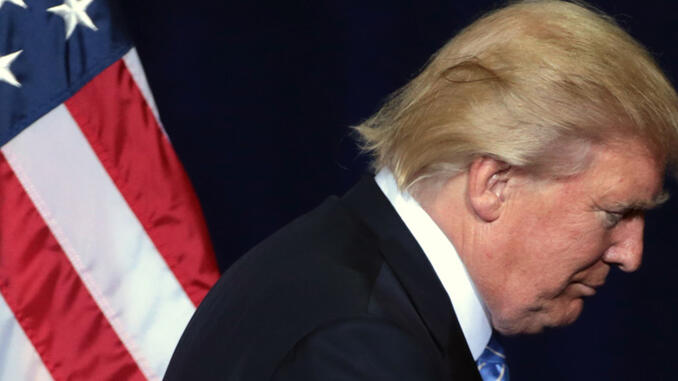
Calls for a special prosecutor to investigate Donald Trump’s presidential campaign are growing after it was revealed recently that Attorney General Jeff Sessions failed to mention in his Senate confirmation hearings his meeting last year with the Russian Ambassador to the U.S. The new revelations forced Sessions to recuse himself from any Justice Department investigation of the Trump campaign’s ties to Russia—ties it is feared that could be used by Russia to blackmail the President. In a recent CNN/ORC poll, two-thirds of Americans believe a special prosecutor should be appointed to investigate any ties between Russia and the Trump campaign. Whether a special prosecutor will be appointed remains to be seen, but the appointment of one would be a nightmare for the Trump administration.
The role of special prosecutor has its roots in the days of Watergate when Archibald Cox was appointed in 1973 by Elliot Richardson to investigate any and all offenses involving Nixon or any of his staff in regards to the 1972 election. Richardson, who was then Secretary of Defense, had agreed to appoint a special prosecutor so his nomination as Attorney General would be approved by the Senate. Congress did not want the Nixon White House to be in a position of investigating itself. The White House promised it would not interfere with the investigation, but when Cox tried to subpoena secret tape recordings from the Oval Office Richard Nixon fired him as part of the infamous “Saturday Night Massacre.” To prevent similar events in the future, Congress created the Office of Special Counsel in 1979.
Special prosecutors are no joke and the threat of being a target of one has to be taken very serious. An adequate analogy in regards to their use on a presidential administration is an errant buzz saw ricocheting indiscriminately within the White House which produces much carnage and gore. Those in opposition to the administration cheer at the mess created and left behind. However, they also fear being the target of a special prosecutor when it is their turn in the White House. It can be a very deadly political weapon.
Investigations by special prosecutors often cost a president precious credibility and political capital as damaging details from the investigation inevitably find their way to the public. Moreover, the details often deviate from matters that ultimately are irrelevant to the initial investigation.
When a leak during the George W. Bush administration illegally made public that Valarie Plame was a CIA spy, a special prosecutor was assigned to investigate after then Attorney General John Ashcroft recused himself from the investigation. Originally, the major suspect in the leak was Karl Rove who had worked for Ashcroft in previous political campaigns creating a potential conflict of interest. The probe, by Patrick Fitzgerald, never charged anyone with leaking Plame’s identity (it turned out the source of the leak was Deputy Secretary of State Richard Armitage), but Vice President Dick Cheney’s Chief of State I. Lewis “Scooter” Libby was found guilty of obstruction of justice during the process. Bush commuted Libby’s sentence, but when it came to giving him a full pardon Cheney and Bush had a serious falling-out over the subject. Cheney accused the President of “leaving a good man wounded on the field of battle.”
During Bill Clinton’s presidential administration Kenneth Star was appointed to investigate the Clintons’ failed business venture from their days in the Arkansas governor’s mansion. Several of their partners in the business venture had fallen under federal investigation from illegal activities in other business ventures. Ultimately, the Clintons were found to have committed no wrongdoing in the business deal, but the investigation uncovered Bill Clinton’s adulterous affair with White House aid Monica Lewinsky—a scandal that ultimately lead to his impeachment hearings.
Many of those who inadvertently come under the scrutiny of a special prosecutor have done nothing wrong, but they deeply suffer financially because they are forced to pay for lawyers to advise and protect them. For the average government worker, the legal fees can be enormous, and it is not unheard of that some have to dip into their retirement savings to make ends meet. It is never a pleasant experience. Investigations by special prosecutors often take years and are a slow drawn out process making it easy to rack up huge legal fees.
Many believe the appointment of a special prosecutor to investigate any nefarious ties between Russia and the Trump campaign is likely. If one is indeed appointed, it will haunt the administration for years to come. What such an investigation would turn up, or where it would end, would be anyone’s guess.
